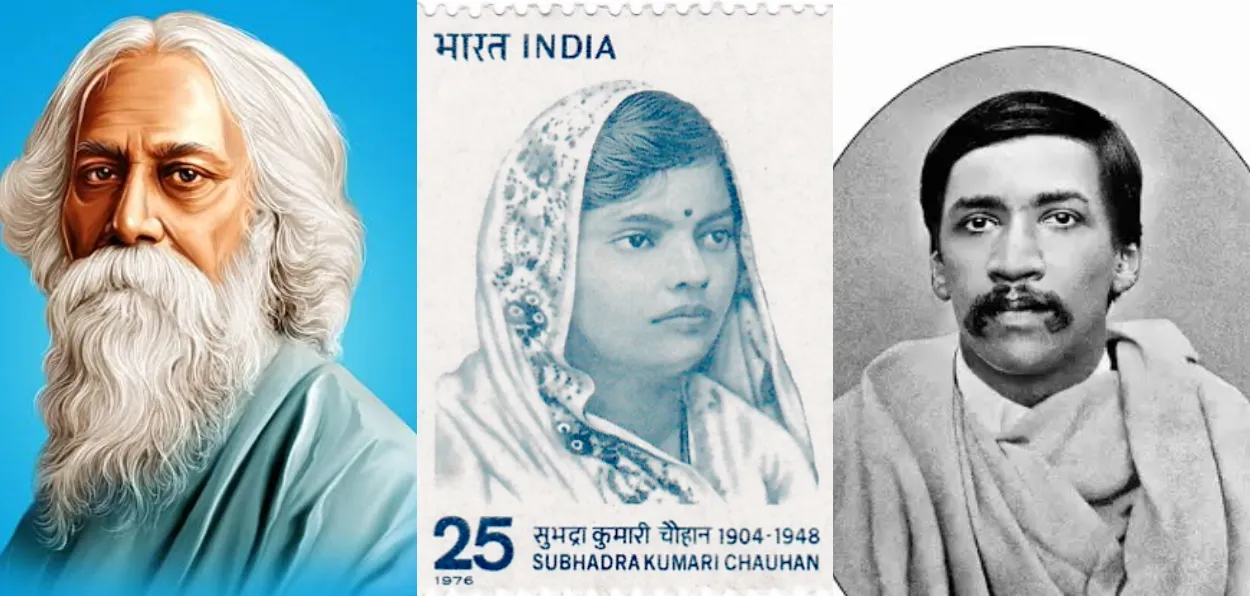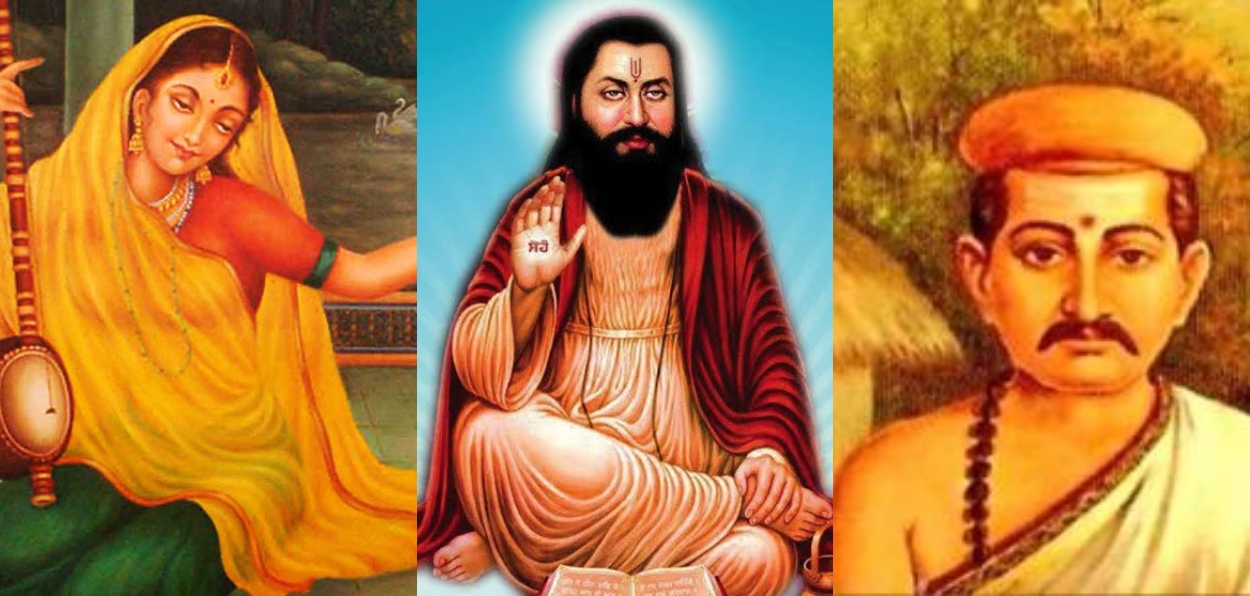
Amir Suhail Wani
Throughout history, religious boundaries have been crossed in the pursuit of understanding, admiration, and respect for figures of other faiths. One such phenomenon in cross-cultural and interfaith engagement is found in the work of several Hindu poets who composed eulogies in honour of Islam’s founder Prophet Muhammad. These poems, often deeply devotional, are evidence of the respect that the Prophet commanded in diverse cultural and religious contexts, particularly in the Indian subcontinent.
The eulogies, or Qasidas (Arabic and Persian), were a practice of offering high praise to religious and political leaders. While Islamic poets from the Arab world were the first to compose eulogies of Prophet Muhammad, the tradition also flourished in South Asia, where Muslim and Hindu poets interacted, especially during the Mughal period (16th to 18th centuries). The syncretic culture which brought together diverse religious communities, facilitated the exchange of ideas, including the admiration for figures from other faiths.
In the Indian subcontinent, several Hindu poets wrote eulogies (often referred to as Madhurastakamor Shahada), paying homage to Prophet Muhammad. This speaks volumes about the religious pluralism that characterized much of South Asian history.
Mirabai
Although primarily known for her devotional songs and poems dedicated to Lord Krishna, the 16th-century saint and poet Mirabai is often considered to have penned verses that express deep reverence for Prophet Muhammad. Mirabai, a Rajput princess and a prominent figure in the Bhakti movement is widely recognized for her devotion to Krishna, but some of her hymns also reflect her openness to the spiritual essence beyond religious boundaries.
In her poetry, she sometimes praised the qualities of figures like Prophet Muhammad, aligning them with her ideal of devotion and surrender to God. Mirabai's vision was one of unity in the divine, and she saw in the Prophet’s life and teachings an example of selflessness and devotion to God, qualities she venerated.
3. Kavi Bhushan
Kavi Bhushan, a 17th-century poet from Rajasthan, expressed his admiration for Prophet Muhammad. Bhushan was employed in the Mughal court under the patronage of various Muslim rulers, and his poetry often blended both Hindu and Muslim elements. His eulogies to the Prophet Muhammad were characterized by admiration for his character, his leadership, and his role as a divinely inspired figure. Bhushan’s verses recognized the Prophet's exemplary qualities, emphasizing the spiritual power and guidance he provided to his followers.
 Mirabai,Sant Ravidas and Kavi Bhushan
Mirabai,Sant Ravidas and Kavi Bhushan
In some of his writings, Bhushan compared the Prophet to other great leaders and saints from various traditions, showing a universal respect for wisdom and righteousness, irrespective of religious background. Through his poetic expressions, Bhushan exemplified the notion of dharma (righteousness) being transcendent and found across various faiths.
Ravidas
Ravidas, a prominent 15th-century poet-saint and leader of the Bhakti movement, is known for his spiritual songs that challenged social inequalities and championed the importance of devotion over caste and ritual. Although Ravidas’s poems primarily focus on the worship of God, his inclusiveness extends to figures from other faiths, including the Prophet Muhammad.
Some scholars believe that Ravidas expressed reverence for Prophet Muhammad as an exemplar of true spiritual devotion. His philosophy, which transcended religious divisions and promoted the idea of a single, all-pervading divine essence, found common ground with the teachings of the Prophet, who also emphasized the oneness of God. Ravidas's works are seen as part of a broader trend within the Bhakti movement that sought to unite followers of different religions in the worship of a singular divine presence.
Swargadeo Rudra Singha:
Swargadeo Rudra Singha, a 17th-century Ahom king of Assam, was another Hindu figure who expressed his admiration for the Prophet Muhammad. Although more famous for his patronage of Vaishnavism and his efforts to consolidate the Ahom kingdom, Rudra Singha is said to have been deeply impressed by the teachings of Islam and the character of the Prophet.
In his court, scholars and poets from different religious backgrounds were encouraged to exchange ideas and honour great figures from various traditions. Rudra Singha’s poetry reflected an admiration for Muhammad as a man of integrity and wisdom, who guided his followers with a deep sense of compassion and justice.
Rabindranath Tagore
Rabindranath Tagore, the Nobel laureate and one of the most influential poets in modern India, is often associated with the philosophical and literary currents of the Bengal Renaissance. While Tagore is better known for his exploration of humanism and his contributions to the broader Indian spiritual tradition, he also expressed admiration for Prophet Muhammad. Tagore saw the Prophet as a symbol of divine inspiration and a messenger of peace and compassion.
In his works, Tagore frequently explored the themes of unity and the oneness of humanity, transcending religious boundaries. Though he didn’t write a formal eulogy in the traditional sense, his poetic expressions regarding the Prophet reflect a deep respect for Muhammad's message of love, peace, and social justice. Tagore was influenced by Islamic and Sufi traditions and often acknowledged the commonalities between the monotheistic principles of Islam and Hinduism.
Sri Aurobindo
Sri Aurobindo, a philosopher, poet, and spiritual leader, was a key figure in the Indian independence movement and a pioneer of the modern spiritual thought in India. While he is known for his integration of Western philosophical thought with Indian spirituality, Aurobindo also expressed his admiration for Prophet Muhammad. He saw Muhammad as a spiritual leader who embodied divine inspiration and leadership. Aurobindo believed that the Prophet, like other great spiritual figures, was a manifestation of the higher spiritual reality guiding humanity.
His philosophical approach emphasized the unity of all religions and recognized the spiritual depth of figures like the Prophet Muhammad. Aurobindo’s writings on Islam, although not extensive, often highlighted the Prophet's moral courage, his commitment to social justice, and his ability to lead with wisdom and compassion.
Subhadra Kumari Chauhan
Subhadra Kumari Chauhan, a renowned Hindi poet from the early 20th century, is known for her nationalist poems and contributions to Hindi literature. In her works, she often sought to break down social and religious barriers and promote unity. While Chauhan’s poems mostly centered on the themes of independence and social reform, she also expressed admiration for the Prophet Muhammad as a figure of moral authority and justice.
Her poetry reflected a broad view of spiritual leadership, recognizing the Prophet as someone who championed righteousness and social justice, values that resonated with her own belief in the unity of humanity and the importance of equality.
Biharilal
Biharilal, a 19th-century poet of the region of Rajasthan, is another notable figure who expressed reverence for Prophet Muhammad in his writings. Biharilal, who was associated with the Bhakti movement, was known for his devotional poems that spanned both Hindu and Muslim themes. He composed several eulogies in praise of the Prophet Muhammad, highlighting his qualities of compassion, humility, and spiritual strength.
In Biharilal’s verses, Prophet Muhammad was often depicted as a divinely inspired leader who preached love, mercy, and the oneness of God. His ability to transcend religious boundaries and inspire people of all faiths was a source of admiration for many, including Biharilal.
One of the key reasons behind the writing of eulogies by Hindu poets can be traced to the influence of Sufism in India. Sufism, the mystical branch of Islam, emphasized love, tolerance, and the pursuit of divine union, values that resonated with many Hindus. Sufi saints often saw all religions as paths leading to the same divine truth, and their inclusive attitude attracted the admiration of Hindu poets.
Hindu poets, particularly those influenced by the Bhakti movement and the teachings of Sufi saints, found much to admire in the life and teachings of Prophet Muhammad. The Prophet’s emphasis on devotion to one God, his life of service, and his message of social justice were values that aligned with the ideals of many Hindu poets, making it possible for them to compose eulogies for him.
The eulogies written by Hindu poets in praise of Prophet Muhammad offer a powerful testament to the interfaith dialogue and cultural exchange that has characterized South Asia for centuries. These poets, through their verses, transcended the religious divides and saw in the Prophet a figure of divine wisdom, compassion, and spiritual guidance.
ALSO READ: Ajmer Sharif embodies inclusive Bharat and common spiritual heritage
This unique form of respect is not merely a curiosity but a reflection of the rich, syncretic culture that has shaped much of the region's history. By paying homage to Prophet Muhammad, Hindu poets contributed to a broader tradition of spiritual unity, one that acknowledges the shared human quest for truth, justice, and divine connection.
P
